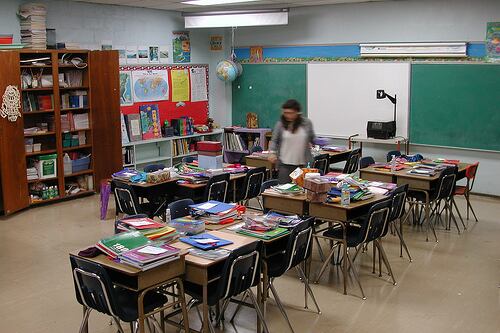Students at KIPP Memphis Collegiate Schools could start returning to campus at the end of the month, after beginning the school year remotely because of concerns over the coronavirus.
The move back to school buildings would make KIPP one of the first public schools in the city to reopen after starting all remote. The return to in-person learning is outlined in a letter from the charter network’s CEO Kendra Ferguson.
“When we began the year, I stated that we would go all virtual through the first quarter,” Ferguson wrote in an internal memo to staff obtained by Chalkbeat. “Additionally, I shared that I would give you and families at least a two-week notice of any change. This is the notice that change is coming.”
Ferguson said the decision was based on data from the Shelby County Health Department and the state Department of Health that show positivity rates, infection rates, and new cases are all trending down. Last week, the governor removed all COVID-related restrictions on businesses and gathering sizes, but extended the state of emergency through Oct. 30.
Shelby County’s COVID positivity rate — or the percentage of tests that are positive for coronavirus — has declined to just over 5% at the end of September from a peak of almost 13% in July, according to health department data. Health officials warn another spike could happen this fall and winter.
Joris Ray, superintendent of Shelby County Schools, has said that the district’s school buildings would remain closed until the daily number of new coronavirus cases in the county declines to single digits for two weeks. Health department records showed 258 new cases reported Tuesday.
According to the memo, KIPP schools would reopen in phases starting with kindergarten, first grade, and all special education students on Oct. 26, and end with fifth and sixth grades on Nov. 30. The older grades won’t return to campus until January.
Parents will be able to opt out and continue learning at home, said Christopher Owens, director of development and communications.
KIPP Memphis operates five schools — two elementary, two middle schools and a high school — with about 2,040 students.
KIPP officials are still surveying parents of younger students about their wishes, but so far about 40% have said they want to return, he said. Parents of older students also will be surveyed.
School leaders decided to start with the younger students and special populations because those groups had the greatest academic needs. “Those are the parents who indicated to us that they would benefit the most” in returning to the classroom, Owens said.
At a meeting with those parents Monday night, Owens said the response from parents was “overwhelmingly” positive.
But a sampling of parents Monday by Chalkbeat shows that going back into the classroom might be a tough sell for some. In interviews with parents and a grandparent, all said they were fearful about going back into buildings so soon.
“I’m not ready for mine to go back yet,” said Rhonda Smith Moss, whose granddaughter is in the eighth grade. “I’m diabetic. I have severe COPD and I’m on oxygen 24/7.” Moss’ health conditions make her a higher risk of getting very sick from COVID.
Others were even more adamant about not returning.
“My kids will not be going,” said Tyrondia Jones. “Those kids are not going to keep their masks on. Those kids are not going to keep their hands off each other. Those kids are not going to stay 6 feet away. It’s not going to work.”
Jones has seven children in school, including a first grader who would be in the first group to return to buildings. “I have a big family — if one gets sick, they all get sick,” she said.
In-person instruction for kindergarten and first grade will be Monday through Thursday with Friday reserved for virtual learning while buildings are closed for deep cleaning. Second through 12th grade will attend two days a week and three days virtually. Air filters in the schools’ HVAC systems will also be replaced and air purifiers placed in classrooms. Hand sanitizer machines have been installed throughout the buildings. Buses and buildings will be limited to 50% capacity to help with distancing.
Students, teachers and staff will have their temperatures checked every day before getting on the school bus or entering the school building and COVID tests will be given every eight days as part of the city and health department’s re-entry program. The tests are not the rapid tests that give results in minutes, but do have a 24-hour turnaround time for results, Owens said. Parents must consent before their child is tested.
Additionally, everyone will use masks with transparent panels at the mouth so people can read lips and facial expressions. Hallways will be marked off in 6-foot intervals, desks will have clear desk shields, students will use their own water bottles instead of water fountains, and windows will be open when possible, with fans used to increase circulation.
Owens said that a school building would close and students would return to virtual learning if a school reaches a 3% positivity rate among students or staff. If students show symptoms at school, they will be isolated until their parents pick them up.








